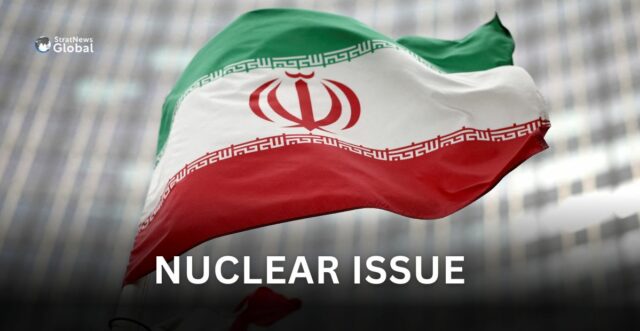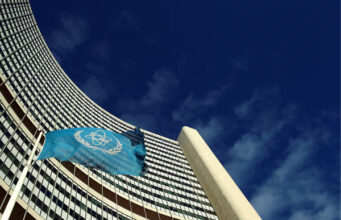European and Iranian diplomats met on Friday to discuss whether they can engage in serious talks, including over Iran’s disputed nuclear programme, before Donald Trump returns to the White House in January.
The meetings in Geneva, the first since the U.S. election, come after Tehran was angered by a European-backed resolution last week that criticised Iran’s cooperation with the U.N. nuclear watchdog.
Trump, who during his last term in office abandoned a nuclear deal with Iran and pursued a “maximum pressure” policy that sought to wreck Iran’s economy, is staffing his new administration with noted hawks on Iran.
Europe’s Firm Position On Iran
European and regional diplomats expect him to take a hard line when he returns to power in January. The European countries have also taken a firm stance lately, limiting opportunities for progress in talks in the weeks before Trump’s return.
Iran’s deputy foreign minister and senior nuclear negotiator Majid Takhtravanchi met the EU’s coordinator Enrique Mora on Thursday evening. He held talks on Friday with top diplomats from Britain, Germany and France, known as the E3.
Mistrust On Both Sides, But Desire To Find Path Forward
Mora said the exchange was “frank” and focused on Iran’s military support for Russia, the situation in the Middle East and the nuclear dossier.
The level of distrust between both sides was highlighted when the E3 on Nov. 21 pushed ahead with a resolution by the board of governors of the U.N. nuclear watchdog, the International Atomic Energy Agency, which criticised Iran.
Tehran reacted to the resolution by informing the IAEA that it plans to install more uranium-enriching centrifuges at its enrichment plants, a confidential report by the watchdog said on Thursday.
Kazem Gharibabadi, Iran’s former envoy to the IAEA, said on X after meeting Mora that “Europe should not project its own problems and mistakes onto others, including with regard to the conflict in Ukraine”.
The E3, the European parties to the 2015 nuclear deal that Trump abandoned, have adopted a tougher stance on Iran in recent months, notably since Tehran ramped up its military support to Russia. However, they have always insisted that they wanted to maintain a policy of pressure and dialogue.
Three Iranian officials said Tehran’s primary objective will be finding ways to secure lifting of sanctions imposed since Trump reneged on the 2015 nuclear deal.
Good Faith
Since Trump abandoned the nuclear deal in 2018, Iran has accelerated its nuclear programme while limiting the IAEA’s ability to monitor it.
“There isn’t going to be an agreement until Trump takes office or any serious talks about the contours of a deal,” said Kelsey Davenport, director of non-proliferation policy at the Arms Control Association advocacy group.
A European official said the primary aim was to try to agree a calendar timeline and framework to embark on good faith talks so that there was a clear commitment from Iranians to begin negotiating something concrete before Trump arrives.
The talks also come as fears linger that tensions between Iran and arch-rival Israel could ignite an all-out war, despite a ceasefire in Lebanon between Israel and Iran’s Hezbollah allies. Prime Minister Benjamin Netanyahu said on Tuesday he wanted to turn Israel’s focus to Iran.
European Powers Push
The European powers hope Iran will decide to begin negotiating new restrictions on its nuclear activities, albeit less far-reaching ones than those agreed in 2015, with a view to having a deal by the summer.
That would give enough time to implement new limits on Iran’s programme and lift sanctions before the accord ends in October 2025.
It is not clear whether Trump would back negotiations.
If no new deal is agreed, the E3 could trigger the so-called “snapback”, a process under the 2015 deal where the issue is sent to the U.N. Security Council and sanctions lifted under the deal can be reimposed.
Iran, which has long said its nuclear programme is peaceful, has warned that it would review its nuclear doctrine if that happened.
(With inputs from Reuters)
















